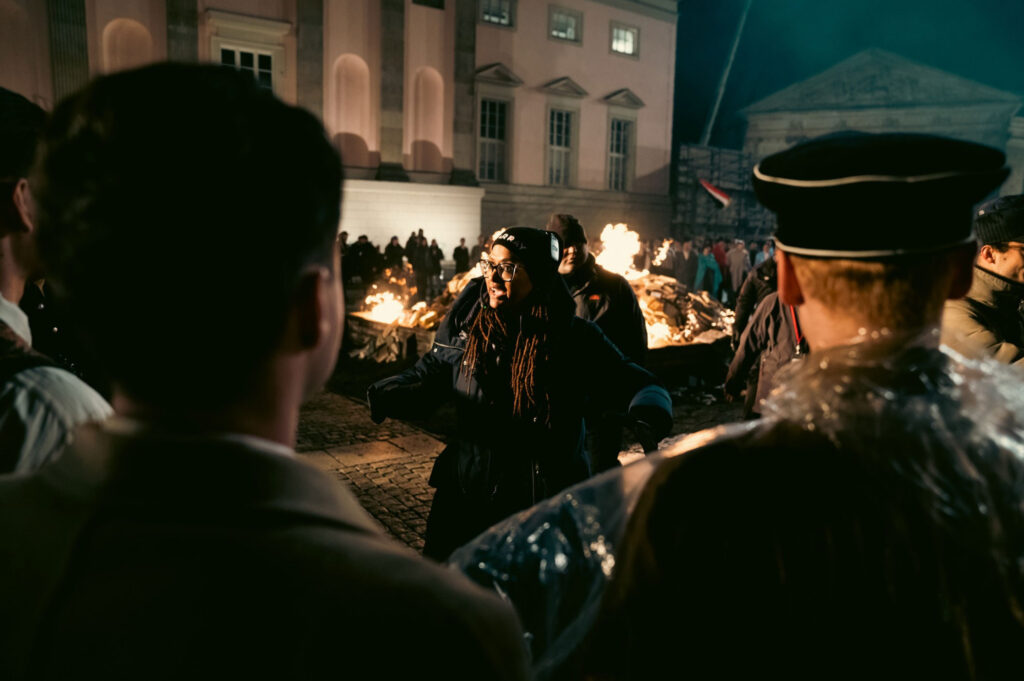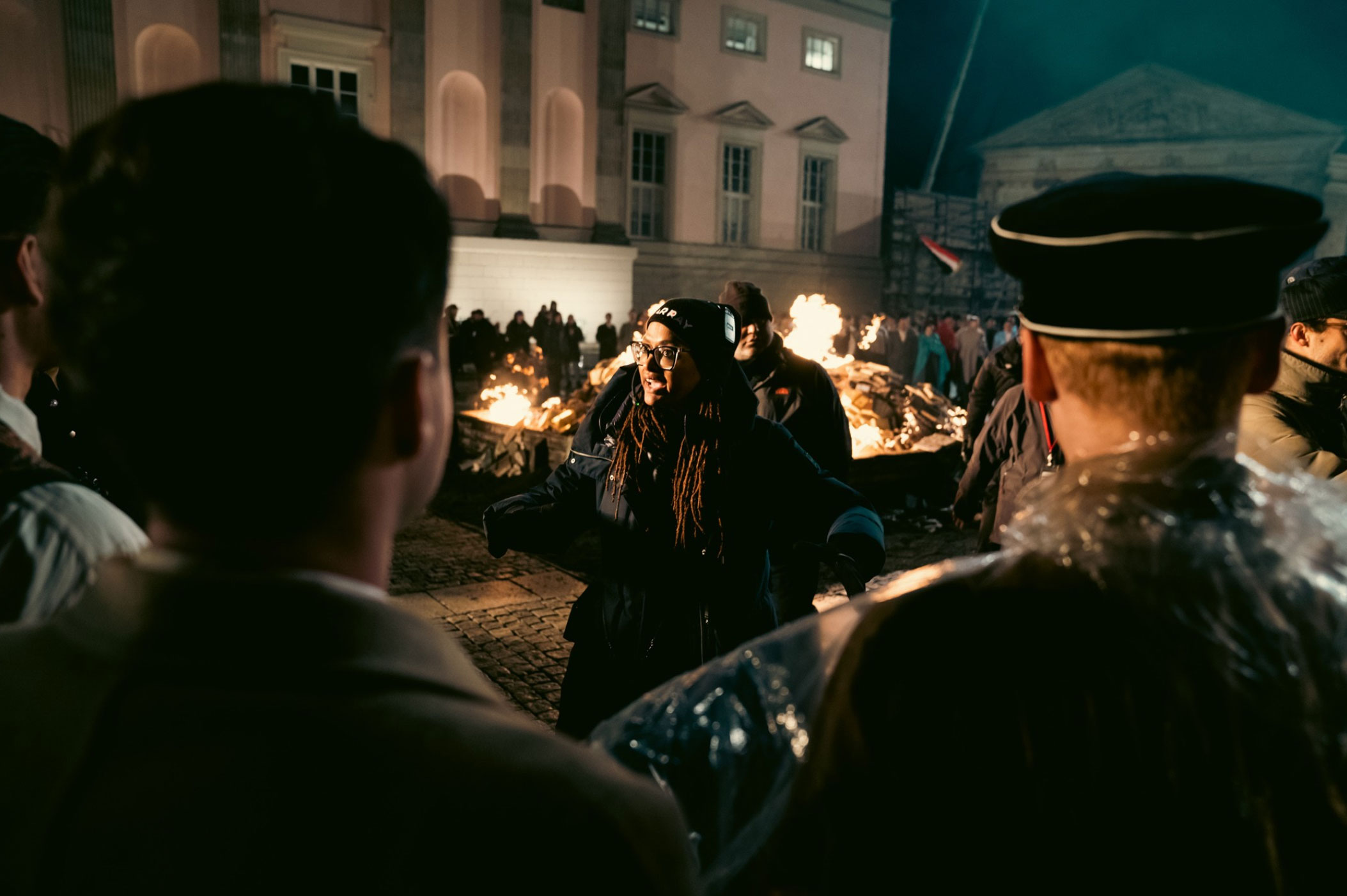Racism and other societal prejudices manifest themselves in caste systems around the world. When acclaimed filmmaker Ava DuVernay decided to make a movie out of Isabel Wilkerson’s 2020 best-selling nonfiction book “Caste: The Origins of Our Discontents,” DuVernay didn’t know at the time that she and the movie would break through a caste system in the film industry that often puts Black female filmmakers near the bottom of the filmmaker hierarchy. DuVernay directed and wrote “Origin” and is one of the movie’s producers.
The world premiere of “Origin” was at the 2023 Venice International Film Festival in Italy, where DuVernay became the first Black female director chosen to have a movie compete for the festival’s top prize: the Golden Lion, an award that’s often the path to an Oscar nomination for Best Picture. The prestigious Venice International Film Festival has existed since 1932. “Origin” didn’t win any awards at the festival, but considering that it took this long for the event to allow an entry from a Black female director in the festival’s main competition says a lot about systemic prejudices.

In “Origin,” Aunjanue Ellis-Taylor (an Oscar nominee for 2021’s King Richard”) stars as Pulitzer Prize-winning author Wilkerson, who decides to write “Caste” after experiencing the grief of having her husband and her mother die within a year of each other. As depicted in “Origin,” Wilkerson’s thesis for the book is that racism in the United States is linked to the same insidious intentions of the Holocaust in Europe and the caste system in India. Niecy Nash-Betts has a supporting role as Isabel’s cousin, Marion Wilkerson.
“Origin” (distributed in the United States by independent company Neon) had a limited release in theaters on Dec. 8, and the movie’s release will expand to more theaters on Jan. 19. The movie depicts Wilkerson’s journey as she does research for the book and gets some criticism and backlash from certain people who think the book’s concept is flawed. There are also dramatic portrayals of how prejudices have damaging effects on people in various periods of time. Some of the characters in the movie are based on real people, while other characters are fictional.
DuVernay, Ellis-Taylor, Nash-Betts, music composer Kris Bowers, singer/songwriter Stan Walker (who wrote and performed the movie’s original song “I Am”), and co-stars Finn Wittrock and Victoria Pedretti (who play a gentile and a Jew in love in 1930s Nazi-controlled Germany) gathered for a virtual press conference to talk about “Origin.” Here is what DuVernay, Ellis-Taylor, Nash-Betts, and Bowers said about what it was like to make the film:
Ava, what attracted you to the story? And why did you decide to make it a movie with fictional characters?
DuVernay: That was intentional. Being a documentarian and also a narrative filmmaker, I saw in this an opportunity to take the fictional elements—my interpretation of Isabel Wilkerson’s life—her loves, her romances, her familial relationships, her dreams—and put that alongside the actual historical documentation of caste, a very weight subject matter, and have those two trains running. The intimate and the epic, the personal and the collective memory. And so, in order to do that, I wanted to play with tools that were beyond just narrative.
There was an opportunity to use [India’s former minister of law and justice Dr. Bhimrao Ramji] Ambedkar’s real voice, to use the real 911 tapes of Trayvon Martin, to use Dr. [Martin Luther] King’s real voice … to create a collage of images, of sound. To have a scene where you’re wondering, “Is that an actor or a non-actor?” I like blurring those lines.
And so, I was really interested, as someone who makes both [nonfiction and fiction films]: “Could I play with the edges of both and interweave something that felt a little different or had a different texture to it?” I think there’s something about the mystery of that, that lends itself to the mystery of Isabel’s journey, as she’s uncovering the secrets of caste.
There’s a documentary feel to [“Origin”], but it also has these surreal elements, where all of a sudden, she’s in spaces that are not of this world. She’s seeing things that are in the past, and the time periods come together. It is an exploration of different filmmaking techniques, styles, and genres, all woven together to try and produce a feeling and create an experience.
Aunjanue, was there a scene in “Origin” that was the most challenging for you in an emotional way?
Ellis-Taylor: I think the scene … where I have to say goodbye to Marion. We shot it at this incredible palace in Delhi. I felt like I was by myself on the planet. I wasn’t able to talk to Niecy, but I had a sense memory. The great thing about my experience with her was that it was something that was so intimate, it lived with me past my being in her physical presence. It was something I could call in my experience with her.
I carry this grief with me [about] the people I’ve lost. That was hard because I never wanted to do something that was performative. There’s a lot of loss in [“Origin”], and I wanted to make sure that I was modulating and not being indulgent. Thankfully, I had a director who kept me honest.
Niecy, were there any scenes that you filmed that affected you in a deep way?
Nash-Betts: This entire movie affected me. So many things in the film speak to a lot of what we’re experiencing in the world right now, as a whole. … I don’t know one person who has seen this movie and not had a conversation about it. That’s what it’s all about: bridging the gap between people so that we love better.
Kris, how did you tap into so many cultures and make it a cohesive story with the music that you composed for “Origin”?
Bowers: Study was a big part of that process. I found a lot of music written in concentration camps. I found it really fascinating that there was a necessity of small instrumentation, because of the nature of that environment. That really inspired having these smaller groups of instrumentation on top of even large ensembles. I also felt like it represented Isabel, in a way—this individual in this large journey.
I think the thing that was most exciting was studying Dalit music and speaking with Dalit musicians and learning about the traditions about that music, learning about this instrument called the parai that they play in certain rituals. They invite Dalit musicians to play [it] for higher castes, to help that caste pass on to the next life. … Working with Dalit musicians to translate the music and have them show me the sheet music, to see how something I wrote was written for them. That whole process was fascinating.
And also having a conversation with the Dalit musicians who felt like they never heard of a Hollywood movie that featured Dalit musicians and Dalit music. To have a chance to collaborate with those musicians, it felt like such an honor. … As far as making it all together, it was really just about taking all of that information and then working with Ava to find a palette that felt like it made sense throughout the whole film.
Ava, what can you say about some of your collaborators on “Origin?”
DuVernay: Aunjanue, being such a leader and a force on set and also through my personal process, [has] a quiet strength that was never demonstrative, never performative. It was always connected, very in pocket. I just felt like I had a partner, a sister to lean on.
Niecy was a ball of energy that would come in every Friday from the TV show that she was working on [“The Rookie: Feds”], flying back and forth from Los Angeles to Savannah [in Georgia], to serve the role, serve the character. [She] was also an incredible friend to me personally.
Kris Bowers is like family to me. That music is like a final imprint of the artist’s brush stroke on the film. He helps me bring these images to life in ways that only his music can do.
Ava, what do you hope that people will take away from this film?
DuVernay: My hope is that when people watch this film, they enter with an open heart and exit with a deeply feeling level, interrogating what they’ve seen and trying to ask how it meets with their life. For some people, it’s the way they treat their neighbor. For some people, it’s the way that they feel about themselves. But the goal of this work is for it to feel like soul food.








